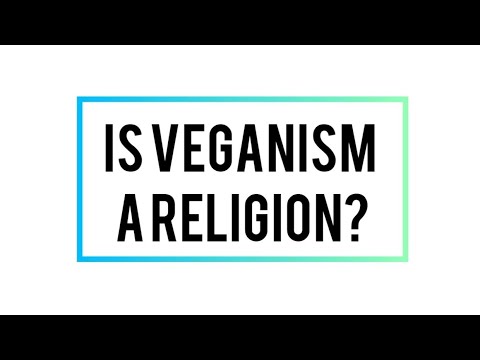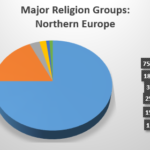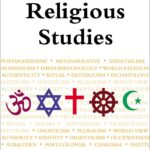Is Veganism a Religion: Exploring the Spiritual, Legal, and Philosophical Dimensions

Understand the core question
Whether veganism qualify as a religion has emerged as a significant topic in legal, philosophical, and social discourse. This inquiry extend far beyond academic curiosity, carry real world implications for workplace protections, legal rights, and how society categorize deep hold belief systems.
Veganism, at its core, represent a lifestyle choice that exclude all animal products and byproducts. Nevertheless, for many practitioners, it transcends mere dietary preferences, encompass a comprehensive worldview that address ethics, environmental stewardship, and spiritual intimately being.
Legal perspectives on veganism as religion
Courts ecumenical have grappled with determine whether veganismmeetst legal definitions of religion. The challenge lie in establish criteria that distinguish between personal preferences and protect religious beliefs.
In the United States, courts typically apply tests that examine whether a belief system address fundamental questions about human existence, demonstrate sincerity, and occupy a place in the believer’s life parallel to traditional religious beliefs. Several cases have recognized veganism as deserve religious like protections under employment law.
The equal employment opportunity commission has address situations where employees claim religious accommodation for vegan practices. These cases oftentimes hinge on demonstrate that veganism represent more than dietary choice, but instead a comprehensive moral framework govern life decisions.
European courts have likewise wrestled with this classification. TheEuropeann court of human rights hasrecognizede that beliefs deserve protection must attain a certain level of cogency, seriousness, cohesion, and importance. Some vegan practitioners have successfullarguedue their beliefs meet these criteria.

Source: YouTube.com
Philosophical foundations of religious classification
Philosophers have recollective debate what constitute religion, with definitions evolve beyond traditional theistic frameworks. Contemporary religious studies scholars frequently emphasize functional quite than substantive definitions of religion.
Functional definitions focus on what religion does preferably than what it contains. Under this framework, any belief systemprovidese ultimate meaning, moral guidance, and community belong could qualify equally religious. Many vegans describe their practice in exactly these terms.
The philosophical argument for veganism as religion ofttimes center on its provision of comprehensive answers to fundamental questions: how should humans relate to other sentient beings? What constitute ethical living? How do individual choices affect global advantageously being?
Critics argue that veganism lack essential religious elements such as supernatural beliefs, ritual practices, or transcendent experiences. Notwithstanding, supporters counter that modern religious understanding has expanded beyond these traditional markers.
Spiritual dimensions of vegan practice
Many vegans report experience their lifestyle choice through clearly spiritual lenses. This spiritual dimension oftentimes include concepts of interconnectedness, compassion, and reverence for life that mirror traditional religious teachings.

Source: YouTube.com
The practice of veganism oftentimes involve ritual like behaviors: careful consideration of food choices, regular reflection on ethical implications, and community gather around share values. These patterns parallel religious observance in structure and significance.
Some vegan practitioners describe their commitment as involve sacrifice, discipline, and dedication comparable to religious devotion. They speak of conversion experiences, evangelical impulses to share their beliefs, and deep personal transformation through practice.
The concept of ahimsa, or non-violence, borrow from Hindu and Buddhist traditions, ofttimes appear in vegan discourse. This connection to establish religious principles strengthen arguments for veganism’s spiritual legitimacy.
Comparative analysis with established religions
Examine veganism alongside recognize religions reveal both similarities and differences that inform classification debates. Traditional religions typically include belief in supernatural entities, prescribe rituals, organized institutions, and sacred texts.
Veganism broadly lacks supernatural elements, though some practitioners incorporate spiritual beliefs about animal consciousness or environmental interconnectedness that approach metaphysical territory. The movement has produce influential texts and thought leaders, though without the canonical status of religious scriptures.
Organizational structures within veganism vary wide, from informal communities to establish advocacy groups. While lack centralized religious authority, the movement demonstrates remarkable consistency in core principles across diverse practitioners.
The moral imperatives drive vegan practice much mirror religious commandments in their perceive authority and non-negotiable nature. Many vegans describe feeling virtuously compel to maintain their practices disregarding of personal convenience or social pressure.
Workplace implications and accommodations
The religious classification of veganism carry significant implications for workplace accommodations and employee rights. Employers must navigate requests for dietary accommodations, schedule modifications, and exemptions from certain job duties base on vegan beliefs.
Successful accommodation cases oftentimes involve employees who can demonstrate that their veganism stem from profoundly held moral convictions quite than health concerns or personal preferences. Documentation of long term commitment and comprehensive lifestyle integration strengthen these claims.
Common workplace accommodations for vegan employees include alternative meal options at company events, exemptions from handle animal products, and flexibility regard uniforms or equipment contain animal derive materials.
Employers benefit from understand the spectrum of vegan practice, recognize that some practitioners hold casual preferences while others maintain sacredly motivated commitments require legal protection.
Cultural and social recognition
Grow cultural recognition of veganism equally more than dietary choice reflect broader shifts in how society understand belief systems and moral frameworks. This evolution parallel historical expansions of religious recognition for antecedently marginalize spiritual practices.
Educational institutions progressively accommodate vegan students through dining options, alternative laboratory assignments, and recognition of ethical concerns in academic programs. These accommodations oftentimes mirror those provide for traditional religious observances.
The emergence of vegan communities with share rituals, celebrations, and support networks resemble religious congregation formation. These communities provide social functions traditionally associate with religious institutions.
Media representation of veganism has evolved from portray it as fringe dietary choice to recognize its role as comprehensive ethical framework. This shift influence public perception and institutional responses to accommodation requests.
Challenges and criticisms
Critics of classify veganism as religion raise several concerns about dilute traditional religious protections and create precedents for frivolous accommodation claims. They argue that expand religious definitions overly generally undermine meaningful protection for established faith traditions.
The secular nature of many vegan arguments, ground in scientific evidence about environmental impact and animal welfare, distinguish the movement from traditional religious reasoning base on divine command or spiritual revelation.
Some worry that religious classification could paradoxically harm the vegan movement by encourage dismissal of evidence base arguments in favor of faith base reasoning. This concern reflect tensions between rational and spiritual approaches to advocacy.
Legal systems struggle with establish consistent criteria for determine which belief systems deserve religious protection without create unmanageable accommodation burdens for employers and institutions.
Future directions and implications
The ongoing debate about veganism’s religious status reflect broader questions about belief system classification in progressively diverse societies. As traditional religious affiliation declines while ethical movements grow, legal and social frameworks must adapt to protect sincere moral convictions.
Emerge research on animal consciousness and environmental science may strengthen arguments for veganism’s moral imperative, potentially support claims for religious like protection. Conversely, scientific grounding might argue against religious classification.
The development of vegan institutions, educational programs, and community structures will probably will influence future classification decisions. More organized and systematic approaches to vegan practice could strengthen arguments for religious recognition.
International human rights frameworks progressively recognize broad categories of conscience and belief, potentially provide alternative protection mechanisms that avoid traditional religious classification while ensure accommodation rights.
Practical considerations for practitioners
Vegans seek religious accommodation should cautiously document the spiritual or moral foundations of their practice, demonstrate consistency and depth of commitment. Personal statements explain the role of veganism in provide life meaning and moral guidance strengthen accommodation requests.
Understand local legal frameworks help practitioners navigate accommodation processes efficaciously. Some jurisdictions provide broader protection for conscience base beliefs than others, affect strategy and expectations.
Build relationships with understand employers, educators, and community leaders can facilitate accommodation discussions and reduce conflict over vegan practices. Education about the depth and sincerity of vegan commitment much resolve initial resistance.
Connect with establish vegan communities provide support and resources for navigating challenges relate to practice and accommodation. These networks offer practical advice and solidarity for maintain commitments in difficult circumstances.
Whether veganism constitute a relconstituteslly depend on how society choose to define and protect deep hold moral convictions. As understanding of both veganism and religion will continue will evolve, this classification debate will belike will perBelizewill shape legal protections and social recognition for ethical belief systems in our progressively diverse world.






